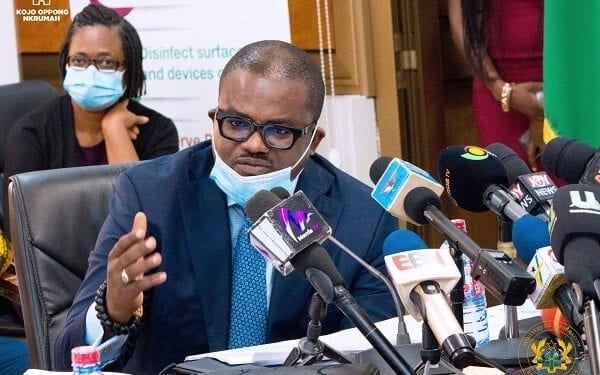- former minister’s actions not criminal
The investigation into allegations of corruption against former Minister of State at the Ministry of Finance, Charles Adu Boahen, by the Office of the Special Prosecutor (OSP) represents a landmark moment in transparency and the wider fight against corrupt practices – especially in public services.
Following 11 months of investigation, instigated by a referral from President Nana Addo Dankwa Akufo-Addo, the special prosecutor has concluded a report published on Monday, October 30, 2023 that Mr. Boahen’s actions amounted to “trading in influence or influence-peddling”, which the current legal framework does not prohibit.
“Though the conduct of Mr. Adu Boahen amounts to trading in influence or influence-peddling, which is closely associated with corruption, there is no actual criminal prohibition of his acts in respect of which the OSP has a mandate to further act,” a portion of the report reads.
The report, analysts believe, however provided the launch-pad for a more robust anti-corruption drive with its vindication of unconventional means for unearthing alleged incidents of corruption.
Sting operation
Allegations of corruption and corruption-related offences against Mr. Adu Boahen – the son of a one-time presidential aspirant – were made following a documentary called ‘Galamsey Economy’ by private investigator Tiger Eye P.I. headed by investigative journalist Anas Aremeyaw Anas.
The documentary presented audio-visual evidence in which the former minister was supposedly involved in corrupt activities – as undercover agents posing as potential investors met with him under the pretext of investing in the nation’s banking sector.
The audio-visuals captured him demanding a percentage of their investment or upfront payment in exchange for facilitating their investment and introducing them to high-ranking officials, including the President and Vice President.
Specifically, he was alleged to have asked for either 20 percent of the initial US$500million investment or a 10 percent upfront payment, along with a post-investment share of the profits. Furthermore, the audio-visuals captured him requesting US$200,000 on behalf of Vice President Dr. Mahamudu Bawumia to facilitate a meeting.
Tiger Eye P.I.’s modus operandi – investigative sting operations – have come under scrutiny for several reasons, chief among them being the belief that it is ethically questionable for a private entity to instigate individuals’ engagement in criminal activities while covertly recording them without their consent, thereby infringing upon their right to privacy.
Critics also contend that such operations can be tantamount to entrapment, as those captured on camera may not have committed the transgressions if not for the undercover agents’ influence. Additionally, some go so far as to label these activities as investigative terrorism – asserting that they subject the individuals caught on camera to undue harassment and distress.
While acknowledging that the invasion of privacy issue is a recurring theme in this debate, the OSP pointed to the Supreme Court ruling that it is acceptable to infringe on a person’s privacy to uncover or expose a crime, especially when conventional methods fail.
Opponents also demand that undercover agents must inform those being investigated and seek their consent for audio-visual recordings. This requirement is seen as impractical, because no criminal would willingly agree to be recorded in regard to committing a crime.
In contrast, the special prosecutor supports sting operations – including undercover investigative journalism. They argue that corruption is challenging to detect and prove through traditional methods, and these unconventional techniques are necessary in the fight against corruption.
“At the OSP, we do not find the arguments against undercover investigative journalistic sting operations attractive. In our gathered experience in investigating, prosecuting and preventing corruption and corruption-related crime, it seems to us that the opposers of undercover investigative journalistic sting operations’ views go around in circles – without any real utility except to provide inexcusable grounds for the benefit of persons who have a propensity to commit crimes when offered the opportunity. And the summation of sting operations opponents’ arguments is simply that the criminal got caught on camera in the act of committing a crime,” the report elaborated.
Furthermore, the OSP noted that there is a global shift toward accepting unconventional methods; and international agreements, like the United Nations Convention Against Corruption, encourage the use of surveillance and undercover operations to combat corruption while adhering to domestic laws.
Additionally, the OSP endorses introducing a Corrupt Practices Act that aims to comprehensively define and prohibit all forms of corruption. It also aligns with persistent advocacy for enacting a Conduct of Public Officers Act to appropriately govern the behaviour of public officials.










